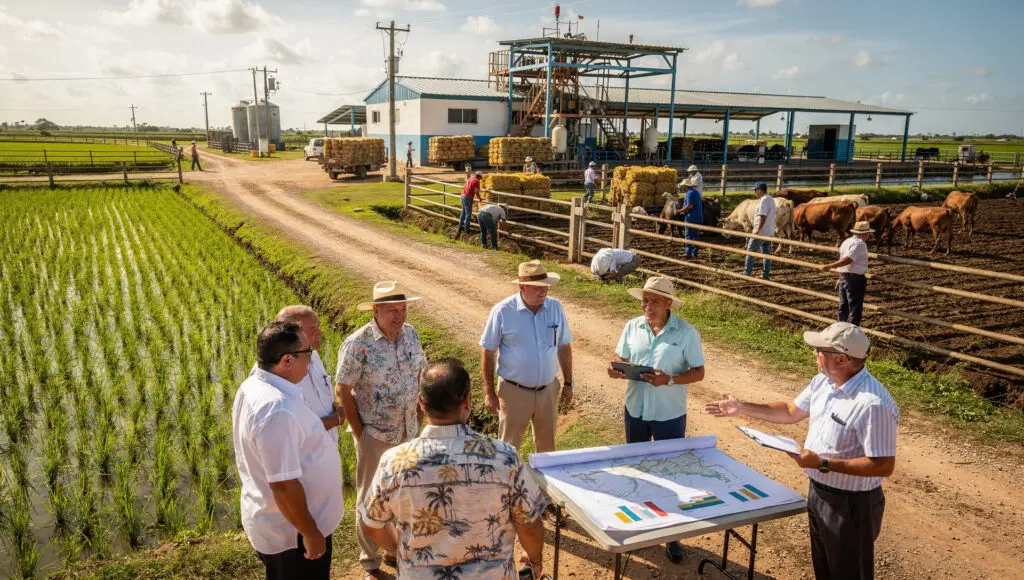WHO Responds to Global Health Financing Crisis
The World Health Organization (WHO) has put out fresh worldwide advice to assist nations in dealing with big reductions in foreign health financing. The document, called “Responding to the Health Financing Emergency: Immediate Measures and Longer-Term Shifts,” lists ways to keep important services going even if outside help is expected to shrink by 30 to 40 percent.
The drop in financing has had a big impact on low- and middle-income countries (LMICs), causing many services to stop working. A WHO analysis of 108 low- and middle-income countries showed that certain areas have seen a 70% drop in important programs, including prenatal care, immunization, and preparing for epidemics.

Source: Worldwide Universities Network
Sharp Funding Declines Threaten Health Progress
The World Health Organization said that the 2025 assistance cuts have made financial problems in global health systems even worse. A lot of nations are having trouble with mounting debt, inflation, and a large reliance on foreign money, which makes them vulnerable to surprise shocks.
More than 50 countries have already said that health personnel are losing their jobs and training programs are being put on hold. Dr. Tedros Adhanom Ghebreyesus, the Director-General of the World Health Organization, says that these failures might undo years of progress. He cautioned, “Sudden and unplanned cuts to aid have hit many countries hard, costing lives and putting hard-won health gains at risk.”
Turning Crisis Into Opportunity for Self-Reliance
Dr. Tedros stressed that the crisis provides a chance to become less reliant on help from other countries, even when things appear bad. He remarked, “The crisis is a chance for countries to move toward being able to support themselves in a sustainable way.” The WHO’s latest advice tells countries to improve their ability to use their own resources and to make sure that health expenditure is fair.
The framework says that we need to stop thinking of health finance as a cost and start thinking of it as an investment in the country’s stability, productivity, and dignity. It underscores how important it is to keep political and financial support for health even when the economy is bad.
Recommended Article: Experts Question ChatGPT’s Mental Health Safety Updates
Key Recommendations in the WHO Guidance
The policy roadmap lays forth both short-term and long-term plans for stabilizing national health systems. Some of the most important suggestions are:
- Putting services that help the poorest and most vulnerable people at the top of the list.
- Keeping important health expenditures from being reduced any further.
- Making the purchasing process more efficient and lowering the costs of running the business.
- Putting disease-specific help programs into larger paradigms of primary healthcare delivery.
- Using health technology evaluations to find the treatments that are the most cost-effective.
These initiatives are meant to keep life-saving treatment available while also helping countries establish stronger and more long-lasting health systems.
Examples of National Leadership and Action
Several countries, including Kenya, Nigeria, and South Africa, have begun to implement changes that align with the World Health Organization’s new guidance.
Nigeria has added $200 million to its health budget, prioritizing immunization and epidemic response, while Ghana has increased its revenue from health insurance excise taxes by 60% through “The Accra Reset,” a project aimed at rethinking health care financing. Furthermore, Uganda has proposed a strategy to integrate similar health programs for improved efficiency.
Building Resilient Health Systems Through Global Solidarity
The WHO says that coordinated work at home and abroad will be necessary to get through the continuing financing crisis. Its suggested strategy is based on making governance, accountability, and community involvement in health finance stronger.
The group said again that it will help nations get universal health coverage by building robust primary care systems. It also stressed how important it is to make sure that aid transitions are slow, planned, and based on national ownership.
Following Global Health Guidelines
The new advice is in line with World Health Assembly resolutions that call for better financing for global health and “Economics of Health for All.” It also helps WHO’s bigger goal of turning global promises into real changes in each country.
WHO and its partners will help with the transition by giving technical help, analytics, and peer learning platforms through projects like the Universal Health Coverage Knowledge Hub, which will start in December 2025 and is a partnership with Japan and the World Bank.
Keeping the Most Vulnerable Healthy
The WHO says that if we don’t act quickly, health differences throughout the world might get worse and millions of people could not be able to get the care they need. Its new policy guideline shows how to protect services, bring back stability, and make sure that every nation can keep the health gains it has made over the years.
Dr. Tedros said, “This moment calls for not retreating but reinventing, where solidarity and innovation shape the future of global health financing.”























